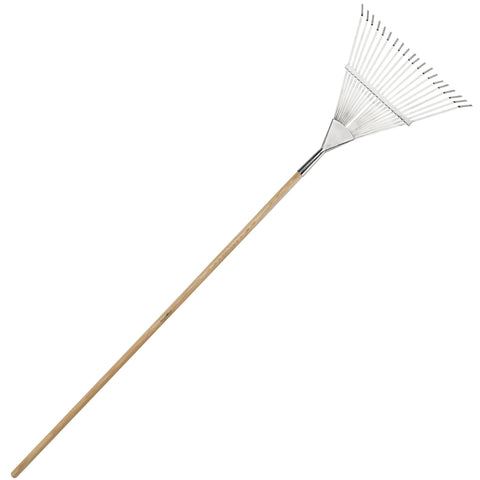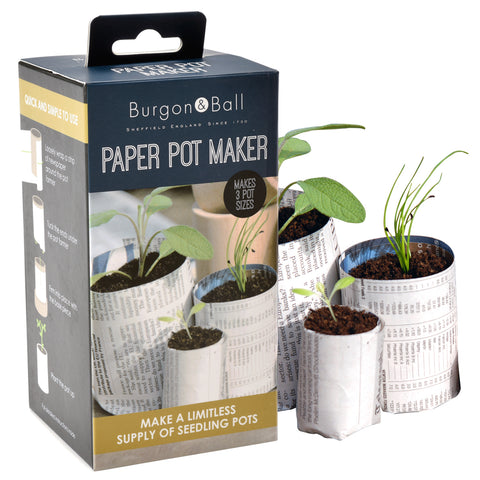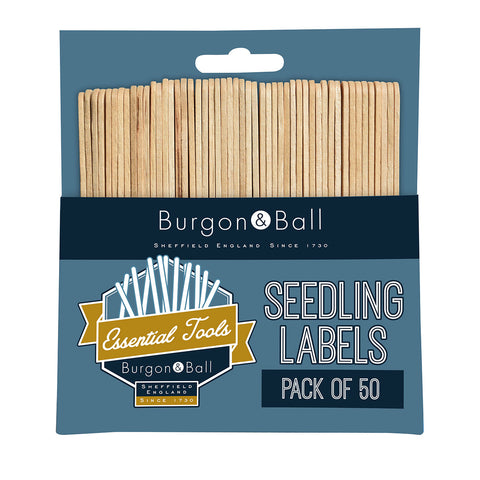We were all shocked by the images of plastic waste in our oceans seen on the BBC’s Blue Planet 2 TV documentary last year. The scenes of sea creatures trying to feed, live, and raise their families among tides of this man-made substance touched our hearts, and put the issue of reducing our plastic waste firmly in the spotlight.
But plastics have become deeply ingrained in our modern lives, and they’ve certainly revolutionised how we live – and how we garden. It’s surprising to take stock of just how much plastic we use around the garden. Pots, seed trays, labels, even tools… How can we start to reduce our reliance on plastic?
Well, as Monty Don wisely observed on Gardener’s World recently, the best way to reduce plastic waste in the environment, is to keep using it. If you don’t throw it away, it’s not plastic waste. And if you use a plastic bag twice, you’ve instantly halved its carbon footprint.
But when it does become time to replace those plastic gardener’s requisites, what are your options?
Well, the short answer is a return to more traditional materials. Wood, metal and even paper have all been used in gardens for hundreds of years, either because they’re durable and will last for years, or because they easily biodegrade in soil, leaving no trace.
Potting up
 We all use lots of pots in spring and early summer. We’re certainly guilty of keeping too many seedlings, potting them on to give them the best chance – well, they might pick up, mightn’t they? But soon you have trays and trays of seedlings, with absolutely dozens of pots. Well, you could use and re-use the same small plastic pots, but you need to give them a good scrub between uses to minimise the chance of spreading disease. As an alternative, our Paper Pot Maker makes an endless supply of paper pots from nothing more than newspaper. The kit makes several sizes of pots, for every size of seedling. When it’s time to plant out the seedlings, simply pop the whole thing in the ground, where the paper will eventually biodegrade. This completely avoids any disturbance to root growth, and completely avoids the endless rows of plastic pots. What a brilliant idea – but so simple.
We all use lots of pots in spring and early summer. We’re certainly guilty of keeping too many seedlings, potting them on to give them the best chance – well, they might pick up, mightn’t they? But soon you have trays and trays of seedlings, with absolutely dozens of pots. Well, you could use and re-use the same small plastic pots, but you need to give them a good scrub between uses to minimise the chance of spreading disease. As an alternative, our Paper Pot Maker makes an endless supply of paper pots from nothing more than newspaper. The kit makes several sizes of pots, for every size of seedling. When it’s time to plant out the seedlings, simply pop the whole thing in the ground, where the paper will eventually biodegrade. This completely avoids any disturbance to root growth, and completely avoids the endless rows of plastic pots. What a brilliant idea – but so simple.
Labelling

Tying back
Instead of using plastic clips or ties, which can so easily get lost and will be turning up in your soil for years, opt for biodegradable jute twine instead. Aside from the plastic-free benefits, you can also compost the whole lot at the end of the season. No more fiddly untying of the tomato plants! Or if you find it awkward to tie twine, our plant support rings are easy to clip into place, won’t damage your plants, and can be used season after season.
Tools
Of course, the ultimate way to go plastic-free in the garden has to be to ditch the plastic tools. Wood and metal have been used in implements to tend the ground for thousands of years. Strong, light and durable, our tools feature FSC®-certified hardwood handles and rust-resistant stainless steel or super-strong high carbon steel for the head, depending on the tool’s use. Our RHS-endorsed tools carry either a lifetime guarantee or a ten-year guarantee (for cutting tools). We believe our new RHS-endorsed leaf rake is the only metal leaf rake available in the UK. It has a lifetime guarantee, in contrast to the alternative of using plastic rakes which will become brittle and start to lose their tines after only a few years of use. Traditional wood and metal tools will get you out of the buy-break-buy-again cycle.
So there are alternatives around, if you're hoping to reduce the plastic in your garden this year. It might seem such small steps won't have any effect, but if millions of us gardeners all make the same small changes, we could make a big difference.





